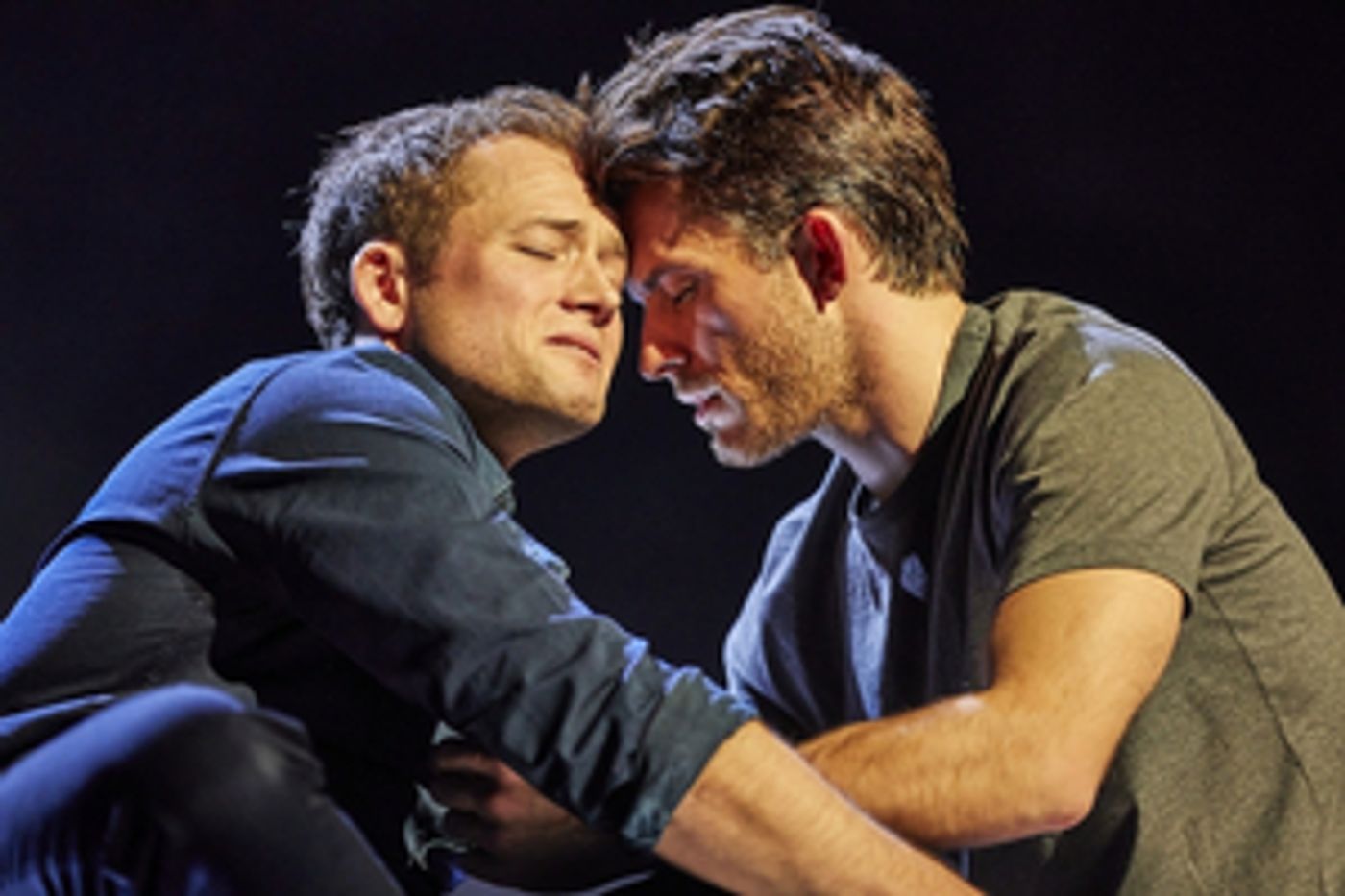Review: COCK, Ambassadors Theatre
A starry revival of Mike Bartlett's fiery but dated play

![]() It's 13 years since Mike Bartlett's provocatively named play made its debut at the Royal Court. Now, Marianne Elliott assembles a starry cast for this West End revival. But how has Bartlett's exploration of sexuality and identity aged, and does it earn its place in the current theatre landscape?
It's 13 years since Mike Bartlett's provocatively named play made its debut at the Royal Court. Now, Marianne Elliott assembles a starry cast for this West End revival. But how has Bartlett's exploration of sexuality and identity aged, and does it earn its place in the current theatre landscape?
The incendiary premise is that John, a gay man who has been with his boyfriend for seven years (albeit in a rather toxic relationship), is thrown into crisis when he has sex with a woman and finds himself developing feelings for her. It makes him question not just who he loves but who he is, as the play builds to a massive confrontation during a painfully awkward dinner party.
Jonathan Bailey brings something of the wild, motor-mouthed panic to John that worked so brilliantly for his Olivier-winning Jamie in Elliott's Company. Now a Hollywood name too thanks to Netflix's Bridgerton (castmate Simone Ashley was in attendance on press night), he takes a bravely abrasive approach: like the Bridgerton rakes, his John is cruelly cavalier about the feelings of others.
Torn between two lovers, and the kind of life he might have with each of them, he lies to both about committing to them only. It's one of the elements of Bartlett's play that has dated badly, perpetuating the hoary myth that bisexuality equals indecision, promiscuity and infidelity. And, in a gender-fluid age, where sexuality is best understood as a spectrum, it seems odd to have it reduced to this stark binary - particularly as John only considers having children with his female partner.
Likewise, the play has a troubling misogynistic strain. When John's boyfriend, M, finds out about his new paramour, W, he spits out a string of words that begins with "girl" and ends "chick, cow, bitch". There's an unfunny running joke about whether or not W is "manly" (based on John's panicked lie), and when M's dad joins them for dinner, he's lascivious, patronising and downright nasty to her.
But then the play is designed to be combative - a cockfight. It's jam-packed with conflicts, from the bickering of long-term partners to raging jealousies. It becomes somewhat exhausting over the straight-through hour and 45 minutes, and a more nuanced reading of both characters and issues is sacrificed for the viciously funny punchlines.
Still, Elliott's sleek production is a brilliant black comedy, and the physicality of it adds layers to Bartlett's text; there are no props or costume changes, and the action is represented by minimal gestures. When John has his first go at heterosexual sex with W, Elliott keeps the pair separated but constantly moving on a revolve, emphasising the individual experience for each as well as the tentative connection between them. It's hilarious, endearing, clumsy and piercingly honest.
She also employs strikingly expressive moments of interpretative dance (by Anne-Lunnette Deakin-Foster). When W first suggests hooking up, Bailey's whole torso is blown backwards as though dodging bullets in The Matrix. Merle Hensel's industrial chrome set is a brutal arena-meets-hall of distorted mirrors, given a queasy sheen by Paule Constable's strip lights, and the revolves are cleverly used to show John moving in the opposite direction to his partner when out of sync, or running in circles as he agonises over his choice.
Yet the play also goes round in circles, restating the same dilemma. Over time, it becomes harder to sympathise with the pathologically dishonest John, especially as Bailey conveys his raging frustration more than his vulnerability. The character also over-dominates the play. A shame, because Taron Egerton works wonders with the bullying and catty yet cripplingly insecure M. "For me - always," he heartbreakingly admits of his feelings for John, meaning a lifetime of love, potentially, but more likely of pain.
Phil Daniels is good value as the father, whose determined support for his son's relationship comes with a menacing edge: he can't, won't, take any more change. And Jade Anouka more than holds her own amongst the swaggering men. Her thoughtful, sincere W has such a different energy, articulating Bartlett's point that different partners reshape who we are. Her gentle description of the lean Bailey as being "drawn with a pencil" makes him completely recalibrate.
Still, the big revelation that it's more about loving a person than a gender is rather "So what?" in 2022. If the issue is that John is being pressured to commit to a monogamous relationship, surely he can find another partner who wants an open one - although his fear over being labelled or pigeon-holed does still ring true.
But works like Jon Brittain's Rotterdam have since riffed on similar ideas in a much more contemporary way. And with so few queer plays given high-profile West End productions, is Bartlett's - however stylishly and inventively staged - worthy of this showcase? That's the new dilemma for audiences to debate.
COCK is at the Ambassadors Theatre until 4 June - book tickets here
Photo credit: Brinkhoff Moegenburg
Reader Reviews

Powered by
|
Videos

